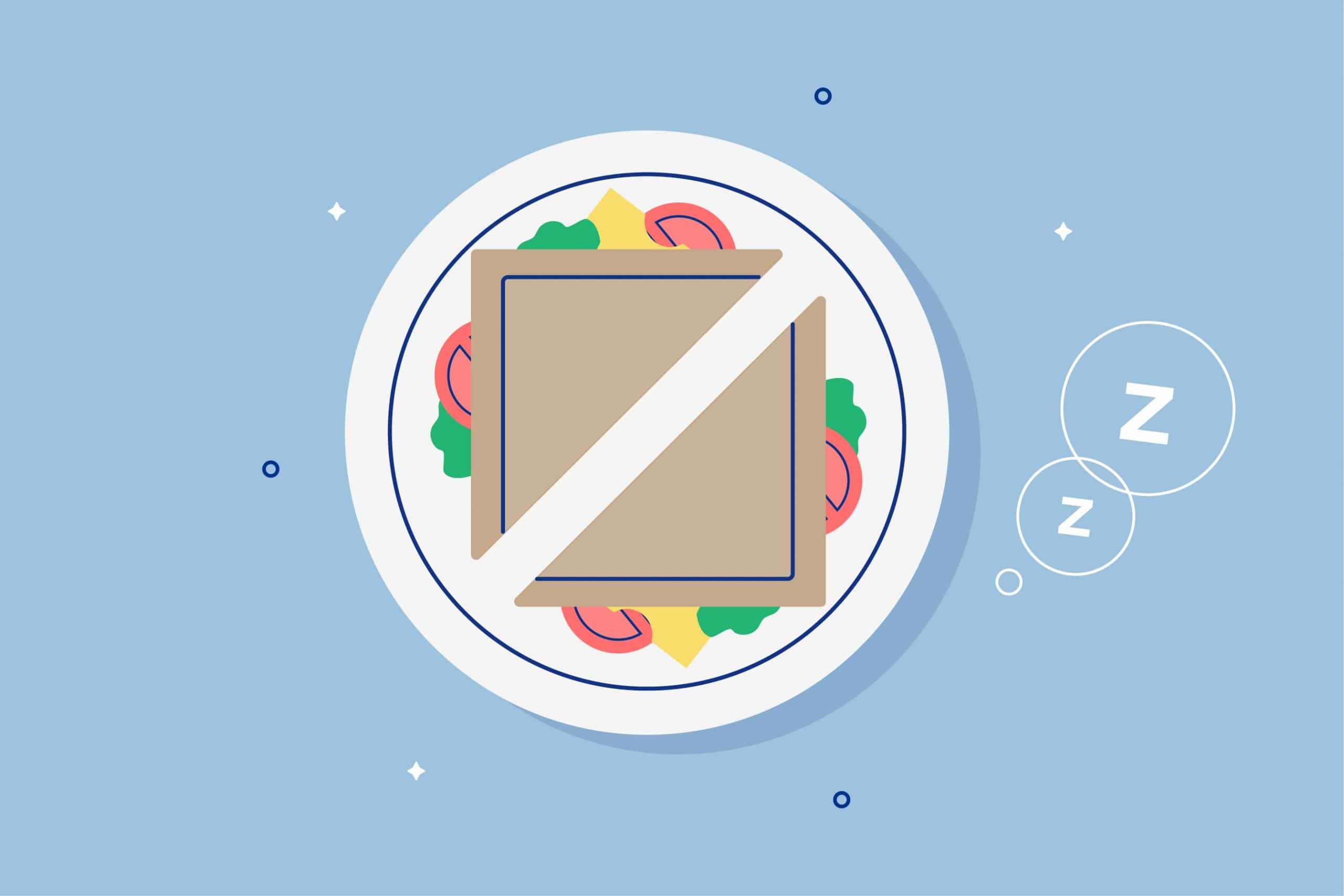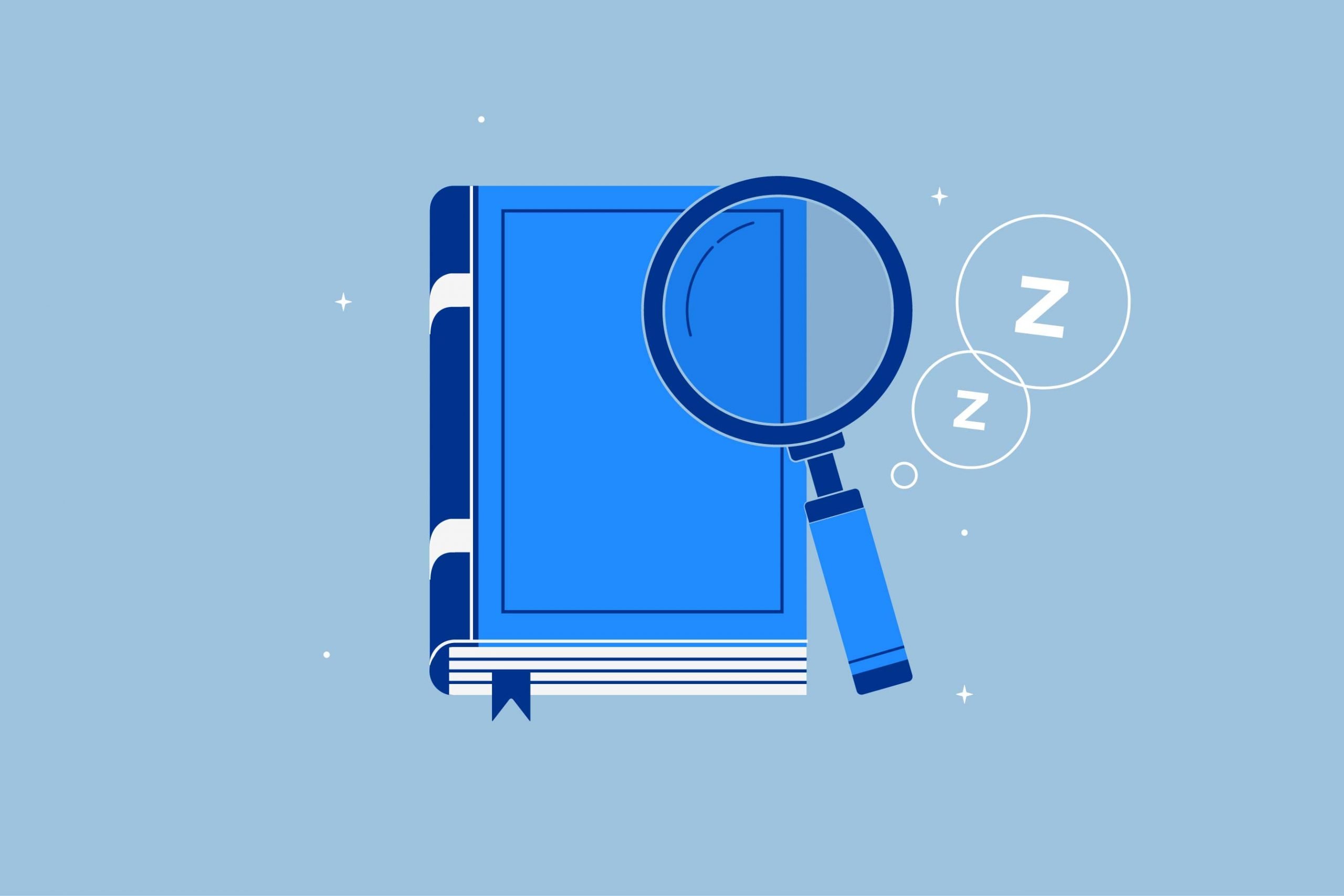There are a lot of conflicting opinions when it comes to nighttime eating and whether or not it’s healthy. Our take is that depending on the foods you consume, nighttime snacking may enhance sleep quality and improve weight loss.
Overall, we recommend having dinner early in the evening and indulging in a light, healthy snack if you start feeling hungry again as bedtime draws near. Read on for a detailed breakdown of the pros and cons of eating close to bed, along with some healthy snack ideas.
Pros of Eating Before Bed
Pros to eating before bed include weight loss, sleeping better, and maintaining blood sugar levels.
Weight Loss
Even in sleep, your body needs energy to function, as it’s recovering from the previous day. When you go to bed hungry, your body lacks the calories it needs to recharge; this results in your body holding onto carbs and fats instead of using it as fuel. Choosing sleep-inducing snacks high in tryptophan and melatonin are not only good for you, but they’ll also satiate hunger pangs and give your body the energy it needs to recover at night.
Tryptophan
Tryptophan is an amino acid that increases serotonin and melatonin levels in the body. We can’t produce tryptophan naturally—instead, we consume foods that contain tryptophan to induce sleep.
Tryptophan-rich foods include milk, cheese, eggs, nuts, fish, and beans.
Melatonin
Melatonin is a hormone that regulates sleep by influencing the body’s sleep-wake cycle. Melatonin production relies on the body’s exposure to lightless light produces more melatonin.
Good sources of melatonin include cherries, walnuts, bananas, oats, and tomatoes.
Sleep Better
A full stomach makes a person feel sleepy, but foods with nutritional value can make all the difference between a good night’s sleep and indigestion. Healthy snacks like apples and peanut butter or avocado toast contain excellent nutrients.
Maintain Blood Sugar
Foods like fruits, nuts, oatmeal, and whole wheat bread regulate blood sugar levels. Low levels result in less energy and feeling groggy the next morning. High levels cause boosts of energy, increasing sleep disruptions.
The best combination of food for sleep is a mix of healthy fat, protein and carbohydrates, but not a big enough meal to make you feel too full or bloated. Opt for a small apple and nut butter, or a teaspoon of raw honey mixed with a tablespoon of nut butter. These types of combinations of macro nutrients help to stabilize blood sugar levels and make you feel full enough that you’ll feel ready for bed and sleepy.
Anything larger than this can cause you to wake up later in the night due to a drop in blood sugar. It will also impact your heart health by increasing your heart rate and decreasing your heart rate variability (HRV), which has a negative impact on your sleep as well.
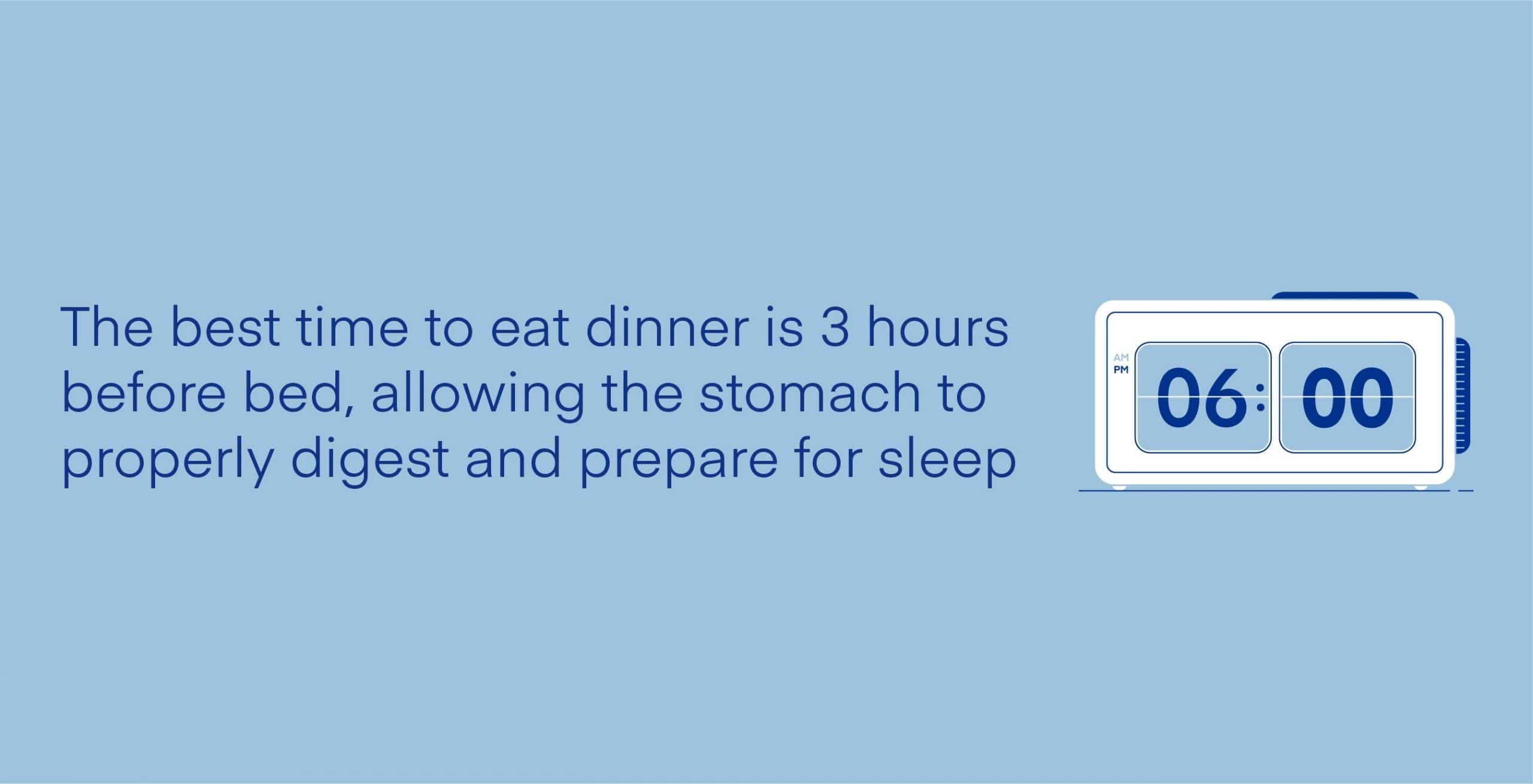
Cons of Eating Before Bed
Cons to eating before bed include poor sleep, slower metabolism, eating more, unhealthy choices, acid reflux, indigestion, and heartburn, and health risks.
Poor Sleep
Depending on what you eat and at what time of day, the foods you consume can disrupt your sleep patterns. Foods containing caffeine like chocolate and coffee may seem like a good idea before bed, but the caffeine boosts your energy and may cause you to wake up several times in the middle of the night.
Slower Metabolism
Eating before bed can cause the body’s metabolism to slow. The body slows down its functions at night to prepare for sleep, but consuming foods, especially those high in carbs, can make it harder to digest and result in weight gain.
Meal Size
People tend to be hungriest at night, leading to consuming larger meals. Instead of eating late at night and leaving less time for digestion, try to train yourself to eat larger meals during the day. The phrase, “Eat breakfast like a king, lunch like a prince, and dinner like a pauper” is sound advice to follow, especially if you’re trying to lose weight.
Unhealthy Choices
One of the main issues with late-night snacking is the choices we make—we’re more likely to give in to those cravings for high-fat, sugary junk food like chips, pizza, cookies, and ice cream. When we snack on these types of foods, especially in front of the TV, we’re more likely to binge-eat, or mindlessly eat our way through more food.
Acid Reflux, Indigestion, and Heartburn
Another risk of eating large meals right before bed is acid reflux, indigestion, and heartburn. Giving the body time to digest before bed can reduce the risk of developing these problems.
After eating and climbing into bed, the body rests at a horizontal angle, resulting in stomach acid easily entering the esophagus and causing acid reflux.
Indigestion is when you suffer stomach pains and discomfort after eating a large meal.
Heartburn is a burning sensation in the chest caused by overeating and consuming spicy foods. Heartburn can worsen when lying down.
Worsens Sleep Apnea
If you already struggle with managing sleep apnea symptoms, late-night eating habits can increase the number of sleeping interruptions you experience. One 2019 study found Verified Source National Library of Medicine (NIH) World’s largest medical library, making biomedical data and information more accessible. View source noted that higher food intake close to bedtime was associated with “an increase in the number of awakenings” in the study’s participants.
Health Risks
Health risks of regularly eating late at night include obesity, diabetes, and heart disease.
Obesity and Weight Gain
One cause of weight gain and obesity is eating more calories than what we use as energy causing the body to store more fat. These high-calorie foods include fast food, fried foods, fatty meats, and sugary junk food make you gain weight no matter when you eat them.
Diabetes
Diabetes is when you have high blood sugar and your body is unable to produce, or struggles to produce, insulin to regulate blood sugar levels.
Heart Disease
Heart disease includes any condition which affects the heart, including heart defects, high blood pressure, and arrhythmia. Regularly eating junk food, especially late at night, can narrow and clog arteries with cholesterol and fatty deposits (a.k.a. plaque).
Don’t Go to Bed Hungry
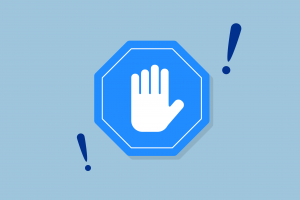 While we encourage you to avoid late-night snacking, we also discourage you from going to bed while hungry. Your body constantly needs energy to function, even during sleep.
While we encourage you to avoid late-night snacking, we also discourage you from going to bed while hungry. Your body constantly needs energy to function, even during sleep.
Going to bed without a last meal means your body has less energy to rejuvenate and repair itself. Plus, with less energy, the body holds onto existing fat for energy, making it harder to lose weight and easier for weight gain to occur.
Eating your last meal a couple of hours before bed helps you balance the need to avoid any hunger that distracts you from sleep, but also keeps you from feeling uncomfortably full and bloated as you stretch out on the bed.
Healthy Snacking for Better Sleep
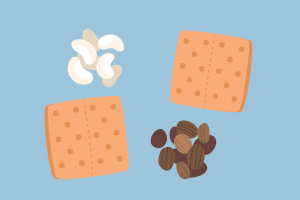 If you’re still feeling hungry after dinner, avoid reaching for that pint of ice cream or bag of chips. Sweets, junk food, and spicy foods are high in calories and can trigger cravings for more food. These types of foods can also hamper the body’s ability to fall asleep quickly at night— reflux and indigestion, and consuming peppers heat the body and hamper the body’s natural cooling process at night.
If you’re still feeling hungry after dinner, avoid reaching for that pint of ice cream or bag of chips. Sweets, junk food, and spicy foods are high in calories and can trigger cravings for more food. These types of foods can also hamper the body’s ability to fall asleep quickly at night— reflux and indigestion, and consuming peppers heat the body and hamper the body’s natural cooling process at night.
Instead, have a bedtime snack containing complex carbs and small amounts of high protein—fruits, veggies, and other nighttimes snacks include:
- Cheese and crackers
- Apples and peanut butter
- Low-sugar cereal with low-fat milk
- Avocado toast
Foods to Avoid at Bedtime
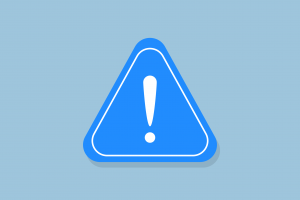 Acidic foods, fried foods, spicy foods, and foods high in fat can all be hard on the stomach, particularly if you lie down soon after consumption. Sugary foods can also affect how well you sleep at night, so try to cut out sweets and junk food.
Acidic foods, fried foods, spicy foods, and foods high in fat can all be hard on the stomach, particularly if you lie down soon after consumption. Sugary foods can also affect how well you sleep at night, so try to cut out sweets and junk food.
Caffeine is one big no-no when bedtime draws near. Obviously, this means avoiding coffee, caffeinated sodas, and stronger black and green teas. But even decaf tea has trace amounts of caffeine in it, so if you want to go completely caffeine free, we recommend herbal teas for sleep.
Best Time to Eat
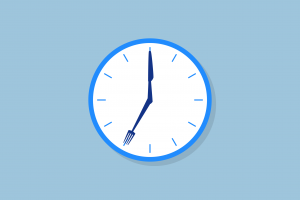 The best time to eat dinner is 3 hours before bedtime, allowing the stomach to properly digest and focus on preparing for sleep when bedtime rolls around the corner. Eating small amounts of foods like complex carbs, fruits, veggies, or a small amount of protein will satiate hunger pains and help you fall asleep faster.
The best time to eat dinner is 3 hours before bedtime, allowing the stomach to properly digest and focus on preparing for sleep when bedtime rolls around the corner. Eating small amounts of foods like complex carbs, fruits, veggies, or a small amount of protein will satiate hunger pains and help you fall asleep faster.
After you’ve eaten dinner, you can spend the next couple of hours unwinding as part of your bedtime routine. Potential activities include a warm shower a bath, reading a good book, journaling about your day, or working your way through a jigsaw puzzle.
If you find yourself feeling hungry as bedtime draws closer, consider a light and healthy late-night snack, like a cup of yogurt or a handful of nuts.
The timing of food and meals is different for everyone and requires experimentation. Some people function better when dinner is 3 hours before bedtime, and some sleep better when it is 2 hours before bedtime. Two hours before bedtime is typically the last time you would want to eat a large meal, due to the negative impact it can have on your sleep and hormones if you eat any later than this.
You can also try having dinner 3 hours before bedtime and a very light snack right before bed. It really depends on the person, how active they are during the day, stress levels and general sleep quality.
Frequently Asked Questions
When should you eat your biggest meal?
While many look to dinner as the big meal of the day, having a light breakfast and lean lunch as a result, it may be better to eat your heavier meals earlier in the day. Many find it easier to maintain a healthy weight if they make lunch their big meal of the day. And for some, eating a large breakfast energizes them more throughout the day.
If you find a large dinner creates weight gain and makes it harder to relax in the evening, you may want to try re-arranging your meal plan so you eat more food earlier in the day and less at night.
When should I stop eating before bed?
The usual advice from experts is to stop eating three hours before bed. This period of time gives your body time to digest a meal, limiting the indigestion, possible weight gain and acid reflux that could keep you up when you get into bed. So if you aim to be in bed by midnight, try to eat dinner before 9 p.m.
What foods should I avoid eating before bed?
Acidic foods, fried foods, and spicy foods are more likely to upset the stomach close to bedtime, particularly if you lie down rather than sleep in an inclined bed. Heartburn is more likely if you lie down after eating, making it easy for the contents of your stomach to flow up your esophagus. This is also why you want to avoid over-eating before bed, and go with a light snack instead of a full meal if you feel hunger pangs.
Should I go to bed hungry?
Feeling a little bit hungry before bed can be a good thing, as you don’t want to feel overly full before bed. However, you don’t want so hungry that you can’t relax and fall asleep. So if you’re struggling to sleep and find your stomach feels empty, a light snack may help you fall asleep.
How can I feel full longer without eating?
High-fiber foods take longer to digest, stretching out the feeling of satiation without loading up on calories. So if you’re considering what to eat at dinner that will help you bypass bedtime snack cravings, look for fiber-filled foods. Whole-grain foods and fruits and vegetables are all high-fiber foods. If you do get hungry later, popcorn is an easy snack to make that’s full of fiber and low on calories.
Conclusion
Eating a large amount of food close to bedtime generally isn’t a good idea. If your stomach is still digesting dinner when you lie down, you may experience symptoms of acid reflux like heartburn or nausea.
Giving yourself two or three hours after eating before going to bed leaves time for your stomach to push its contents into your small intestine, reducing the likelihood of digestive issues when you stretch out in bed.
About the author
Sanchita Sen is a full-time writer focusing on the sleep health and mattress industry. She is a former journalist who has written numerous articles on the healthcare sector. Some of the topics she has covered include how to lucid dream, fever dreams, melatonin for sleep, and best gel memory foam mattress. Sanchita holds a Master of Arts in Communications from Convergence Institute of Mass Media and Information Technology Studies. She is also a published author, who seeks inspiration from both real life and the world of fiction.
View all posts